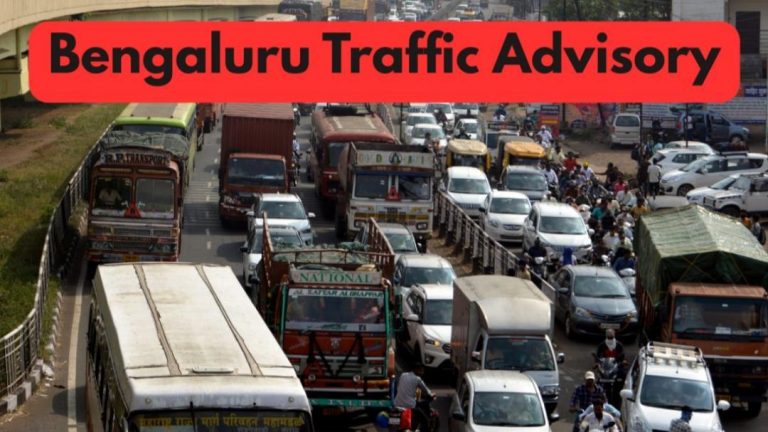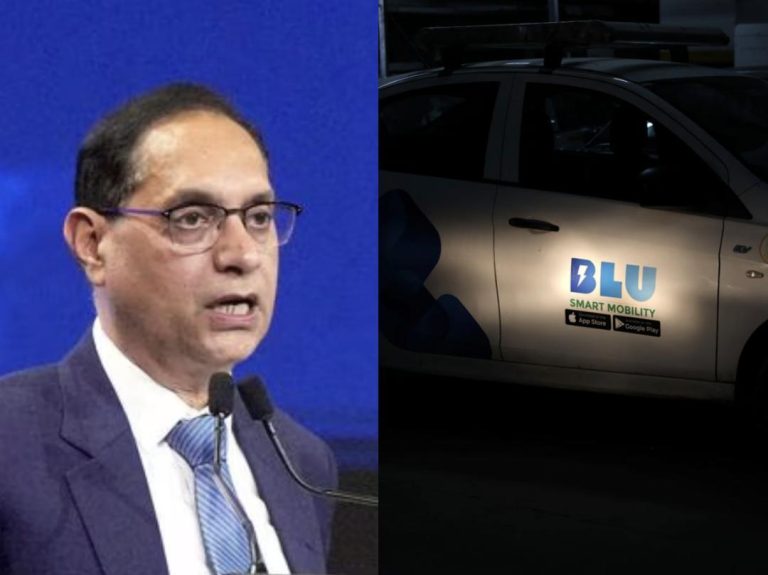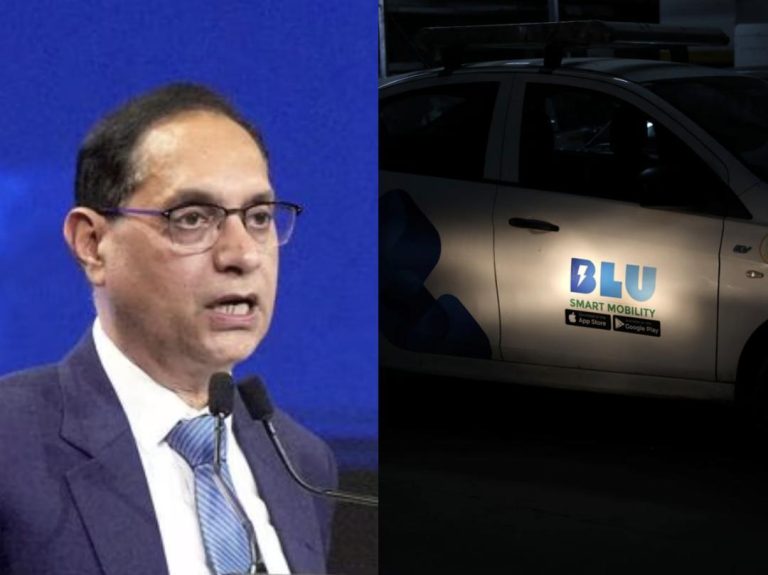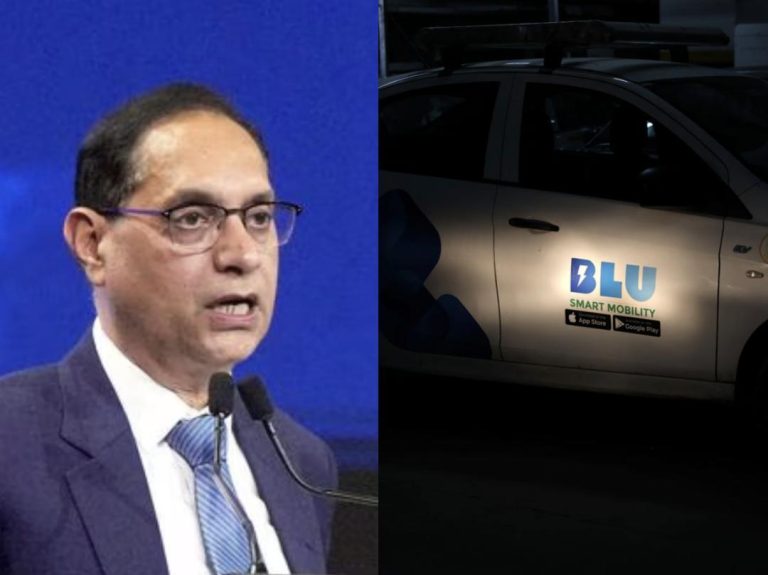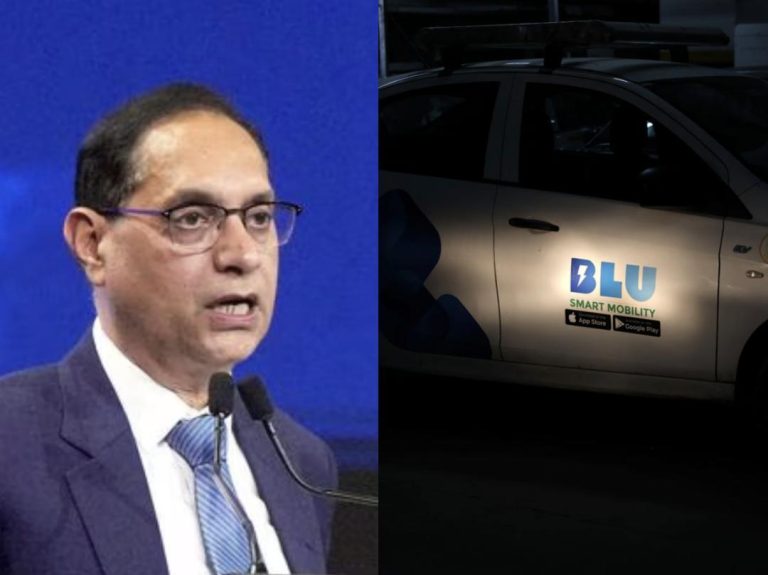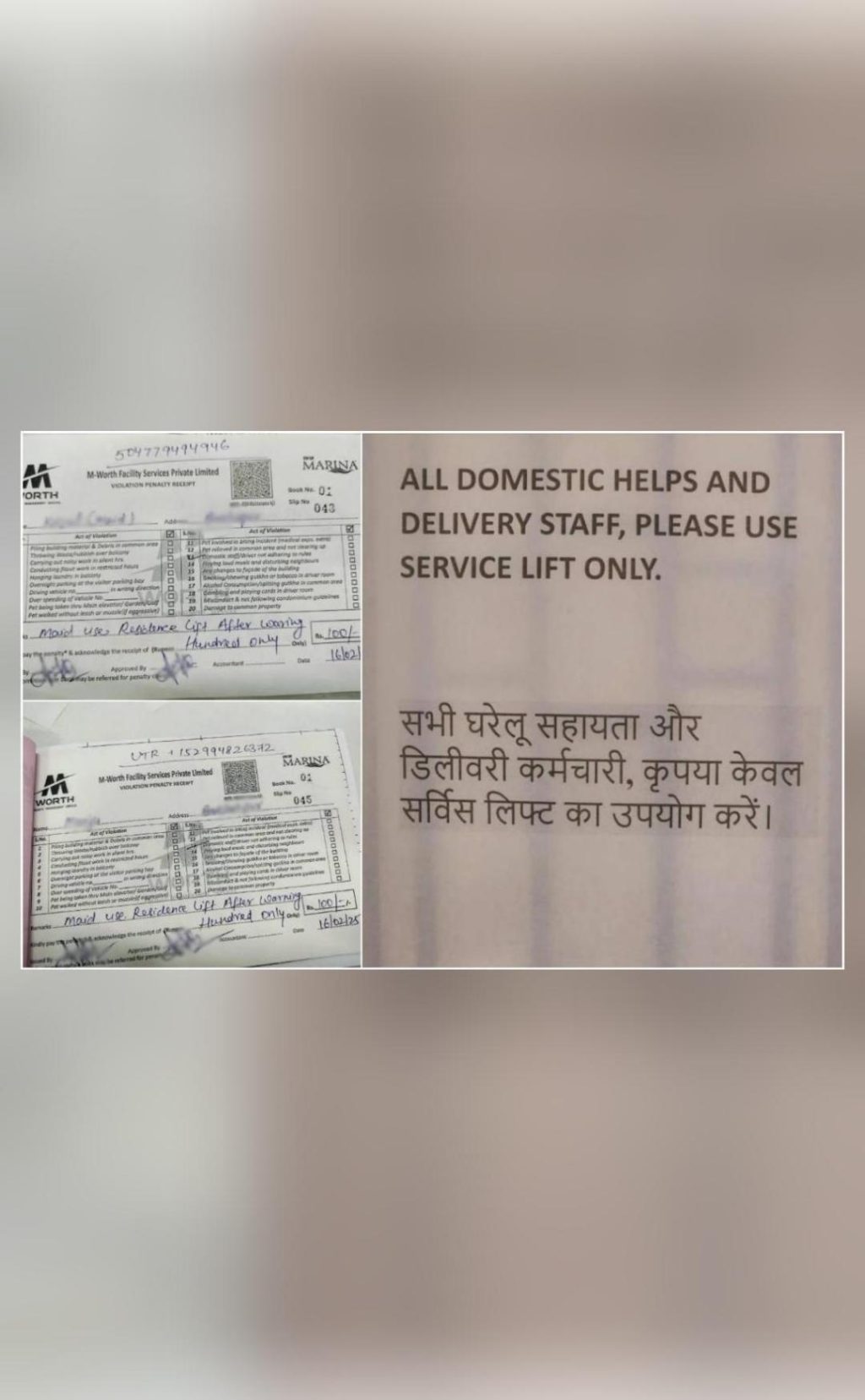
Housing society fines domestic helpers ₹100 for using main lift in Gurugram, sparks debate
In a shocking incident, a housing society in Gurugram has sparked a heated debate by imposing a fine of ₹100 on domestic helpers and delivery staff for using the main lift instead of the designated “service lift”. The controversy began when a Redditor shared pictures of a notice posted at the society’s entrance, directing domestic helpers and delivery staff to use the service lift, and not the main lift. Accompanying the post were receipts of the fine imposed on those who failed to comply with the order.
The Redditor, who chose to remain anonymous, expressed discomfort with the situation, saying, “This makes me uncomfortable. Is this common?” The post quickly gained traction on the online platform, sparking a heated debate among users.
On one hand, some users defended the housing society’s decision, arguing that it was a reasonable measure to maintain the property’s upkeep and ensure the comfort of its residents. “What’s wrong with that?” asked one user. “If you’re not a resident, you shouldn’t be using the main lift. It’s not about class, it’s about respecting the space and rules of others.”
On the other hand, many users condemned the society’s decision, labeling it “classist” and “discriminatory”. “This is exactly what’s wrong with our society,” said one user. “We’re segregating people based on their occupation or social status. It’s unacceptable.”
The controversy has also raised questions about the treatment of domestic helpers and delivery staff in our society. Domestic helpers, in particular, are often viewed as essential but invisible members of our households, working behind the scenes to keep our homes clean and running smoothly. However, they are often subject to poor working conditions, inadequate wages, and lack of respect.
The fine imposed by the housing society is just the latest example of the discrimination faced by domestic helpers. It is a reminder that we still have a long way to go in terms of treating all individuals with dignity and respect, regardless of their occupation or social status.
The issue also highlights the need for greater awareness and education about the working conditions of domestic helpers. Many of these individuals are migrants who have left their homes in search of better opportunities, only to find themselves facing exploitation and mistreatment.
The Indian government has taken steps to improve the working conditions of domestic helpers, but more needs to be done. The introduction of the Unorganised Workers’ Social Security Act, 2020, is a positive step forward, but it is essential that the government ensures its effective implementation.
In conclusion, the controversy surrounding the housing society’s decision to fine domestic helpers and delivery staff for using the main lift is a stark reminder of the social and economic inequalities that still exist in our society. While some may view the decision as a reasonable measure to maintain the property’s upkeep, it is essential that we recognize the inherent dignity and worth of all individuals, regardless of their occupation or social status.
We must work towards creating a more equitable and just society, where everyone is treated with respect and dignity. This includes ensuring fair wages, safe working conditions, and equal access to basic amenities and services for all individuals.
As we move forward, it is essential that we continue to engage in open and honest discussions about the issues facing our society. By doing so, we can work towards creating a more just and equitable world, where everyone has the opportunity to thrive.
